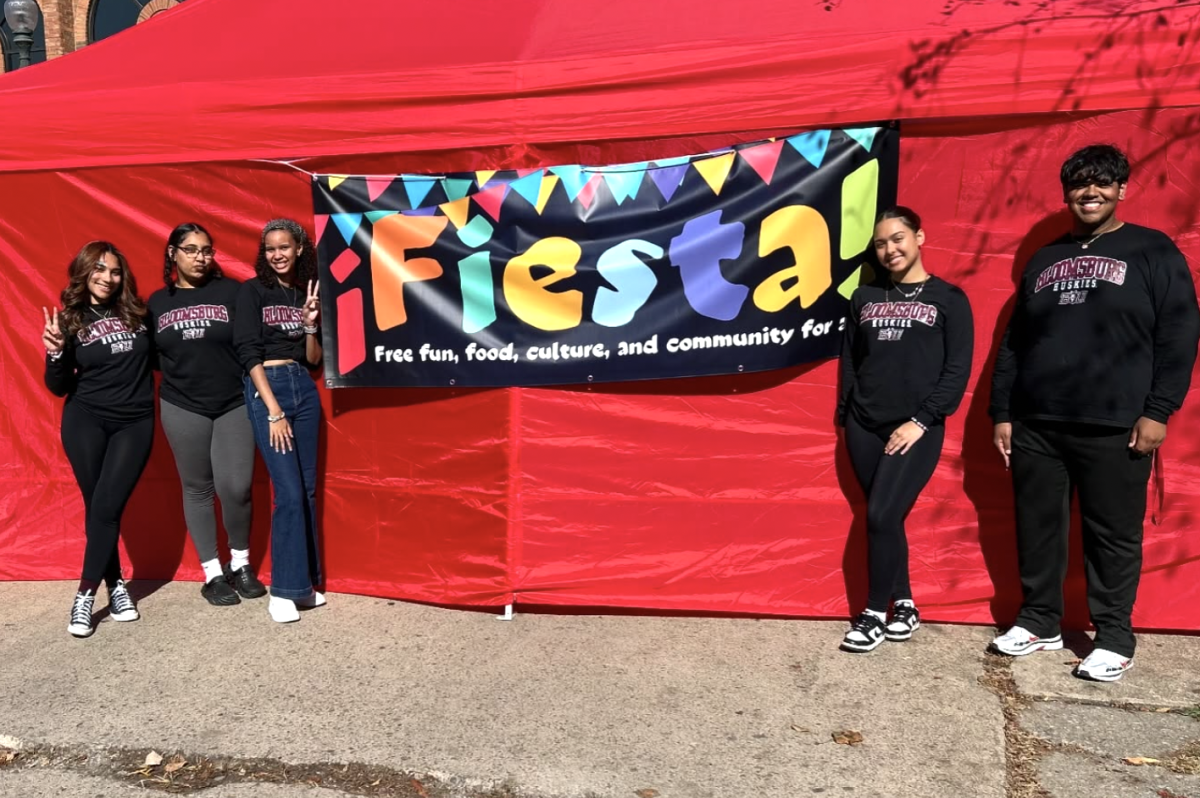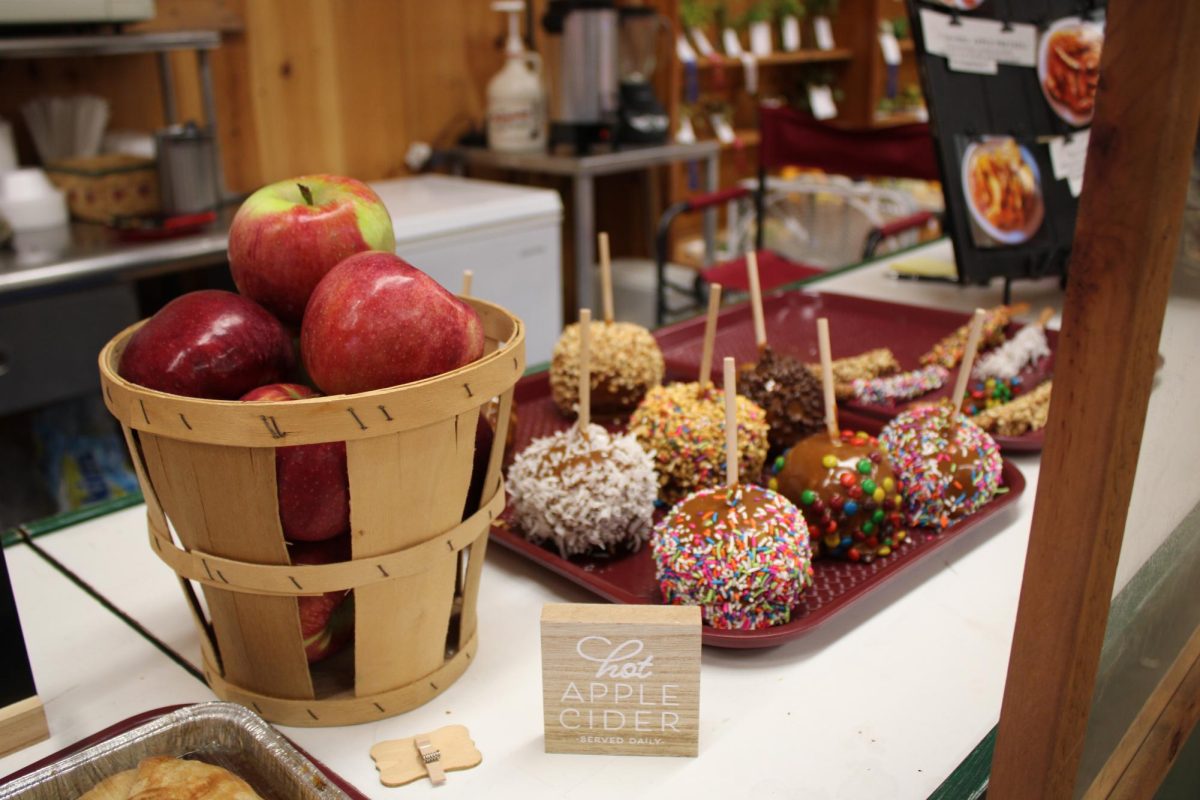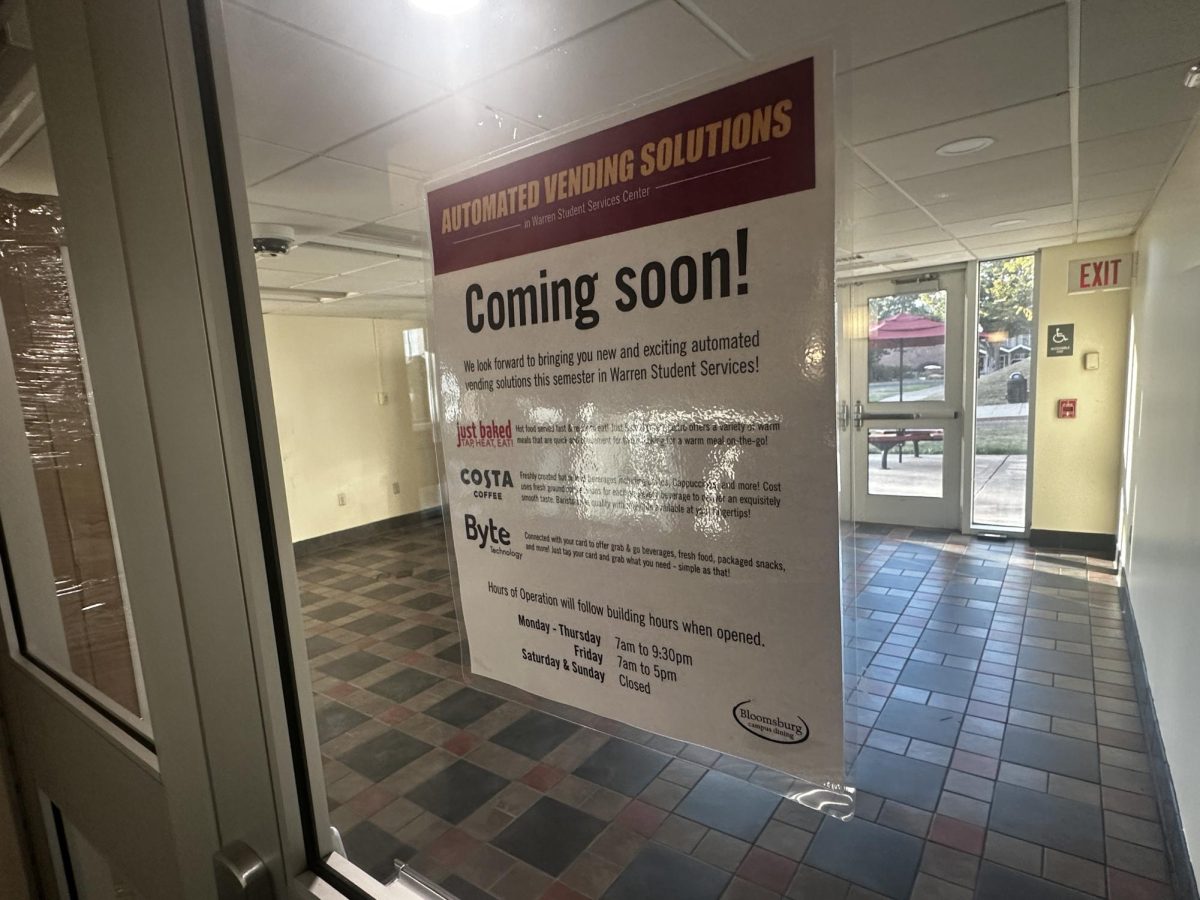Students gathered on Monday at the Haas Center for Performing Arts to listen to Rev. Dr. Jamie Washington talk about the importance of diversity and inclusion. Washington was introduced by Marquise Rivers, assistant of multicultural affairs.
“He serves as the Pastor of Unity Fellowship Church of Baltimore and is the grandfather of six and great uncle to seven,” said Rivers, “Known as the “Engagement Specialist”, he sees himself as an instrument of change. He works everyday to help people find the best in themselves and others.”
After his introduction, Washington walks in and begins to sing a song.
“My living shall not be in vain. If i can help somebody as I pass along then my living shall not be in vain,” sang Washington.
He then explains his purpose and why he was there.
“I believe in the building capacity for better inclusion and our work for the next round,” said Washington, “ If you do not believe in the humanity for the person sitting next to you then this is not for you, you won’t like what I have to say.”
Washington posed the question to the audience,” What is the work for 2018 so we can build a better future for ourselves? It all start with building a relationship.”
He then made the entire room stand up so each person can introduce themselves to someone they didn’t know.
“Now i want every single one of you to get up and introduce yourself to five people you do not know,” said Washington, “Afterwards i want you to make a friend from someone in this audience. It has to be someone you did not know and sit down next to them.”
The room was then filled with students scattered everywhere introducing themselves to new faces. Then everyone began to sit down once they found a new friend to talk with.
“I made you guys do this because it is important to expand, move to places that is uncomfortable to you,” said Washington.
Throughout the discussion, Washington had the audience high five their partner while saying “Prepare to deal with conflict,” as a sign of positivity.
Students then had to answer four questions with their new partner, questions like,
What has been your experience with diversity and inclusion on campus? What reasons do you believe this session may be necessary tonight? What hopes do you have for our time together?
“How did you guys feel just now when you had to get up and talk to someone you didn’t know?” said Washington.
Three different students in the audience answered the question saying they felt apprehensive, awkward and vulnerable.
“Now what did you say to your partner about your experience with diversity and inclusion on campus?” said Washington.
“I believe that conversations like this our absolutely important,” said Nakoda,
“I am from a small town and we don’t have these conversations on campus often and we should.”
“People are often scared to have these conversations,” said Washington, “ We usually have the meeting after the meeting and we don’t say what we should have said in the moment and we tend to not voice how we feel until after when we’re with our cliques.”
Washington then explains how people need to be understanding of each other’s opinions and perspectives during a conversation.
“We have to understand that all perspectives are valid however your perspective may be limited based on where you come from and your experiences,” said Washington, “Now I am a black man and I can talk about my experiences in this country as a black man. Now that does not mean every black person in America share the same experience as me but it means that they could have and it is important that we understand that.”
Washington made a list of important factors to think of when having that conversation. He included factors like “I” statements matter and so does we, listen carefully, open to new perspectives, take risks and prepare to engage conflict and discomfort, trust intent and name, engage and explore impact. He then gave an example for one.
“Let’s say I meet someone who said something really racist, but i let it go because i know their intentions were good and they’re a good person. That is wrong because that is me setting that person up to do it again. You have to name the impact,” said Washington, “ People with good intentions can do or say hurtful things.”
The speech then transitioned about embracing diversity.
“We must recognize the beauty of our diversity and I’m not talking about going to festivals and eating other cultural food, we need to have fun with people about our differences,” said Washington, “ With that being said, we need to do these things without the coach around. We tend to leave the space and leave that energy in the room. We need to shift the dynamics of the status quo.”
The goal for the upcoming generation was Washington’s biggest agenda. “ The primary role of higher and postsecondary education is to prepare you, it is our role and responsibility that our students know how to engage differences and understanding how to go to the next round,” said Washington, “Do you know that less than 30% of the U.S. population goes to a institute of higher learning? So understand that it is a privilege to receive a four to six year education at a university and it is your responsibility to show up in the world differently.”
Washington then goes back and continues explaining how to have conversations about our differences.
“Now just because you have someone in your class or job who is different than you does not mean you understand the dynamic of differences or experiences, saying well I have black people in my class does not count,” said Washington. “ We need to understand context before content, so inform your context like what you know, what you see, your experience, where you are located. Having this conversation in Philly or Cheyney University will be different than having it here at Bloomsburg. Context will inform how the energy of the discussion.”
Washington uses race as a primary example throughout his speech and talks about the importance of the topic in the U.S.
“Diversity is more than race and race is more than black and white. You cannot lead well if you are not willing to do race, you must do race,” said Washington.
He then made the audience repeat this sentence.
“Jamie did not say race was more important than other issues of difference”
“I use race because it is continual and will be for a very long time in this country,” said Washington. “We also have class discrimination, gender, nationality, size/appearance, sexual orientation, and more.”
A quote was then used to explain the significance in having these conversations in order to move forward. “We can’t teach what we don’t know and we can’t lead where we don’t go,” said by Malcolm X.
“This quote means a lot to me because it gives me a reason to why i am doing all of this. You get to choose if you are willing to do the work that will build the capacity to make the change,” said Washington.
Awareness, skills, knowledge and action are the four things that Washington said will increase when you leave the conversation.
“We must have a problem with the certain things going on in this country in order to be a part of the movement. We must own which member we are a part of in which group, whether if that is the oppressed or the privileged,” said Washington.
The speech then ended with Washington reminding the audience that the people before us had a responsibility and now we have a responsibility for the ones that come after us.
“Every generation has the ability to push forward. As a gay black man, my ancestors had to suffer before me so I can be where i am today. I am not saying that we have to fix the entire problem,” said Washington, “ If you care about change and making a world a better place, then leave it better than how you found it. I believe you can, I believe you will.”






















